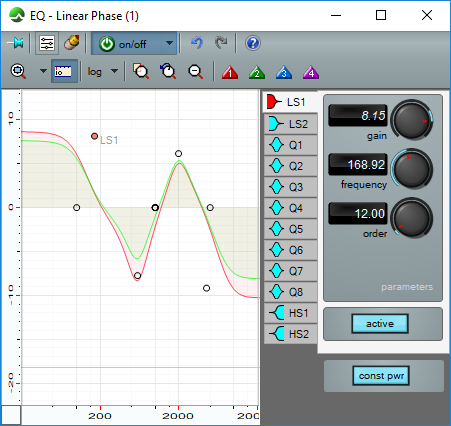Equalisation

CEDAR Cambridge equalisers provide 64-bit, 192kHz equalisation. They sound superb and are glitch-free when you modify them in real-time, and their intuitive user-interfaces allow you to create and modify multi-channel EQs with ease.
Whichever EQ you choose, twelve filters are provided for each channel, comprising two low frequency shelving filters, two high frequency shelving filters, and eight 'Q' parametric filters. You can activate each of these individually, and use the mouse to drag the frequency, gain, Q or shelving order of each. This is extremely fast and intuitive, and gives you maximum control with the minimum of fuss.
The EQs offer linear and logarithmic displays, zooming, and CEDAR's unique Markers that let you transfer frequency information between CEDAR Cambridge processes. Furthermore, every parameter with them is automated, so you can create and save complex equalisation changes and use timecode to recall them as required. This makes them ideal for the most demanding audio and post-production environments, where audio quality combined with speed of use and powerful automation are absolute requirements.
Linear phase (FIR) equalisation
This EQ preserves the symmetry of the waveform and the shapes of sharp transients, and is ideal for general tonal shaping of the signal. It also includes CEDAR's unique Constant Power Equalisation which allows you to change the tonal balance of the signal without altering its loudness.
Precision (IIR) equalisation
This form of EQ is particularly suited to precision removal of constant tones and brick-wall filtering, and is as much at home in the audio forensic laboratory as it is in the mastering studio or post-production suite. It provides high Qs across the spectrum, is totally free of pre-echo, and offers the minimum latency for a given response. It is also the EQ of choice when trying to compensate for inappropriate applications of analogue EQ.
See also: Spectrum Analyser.